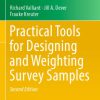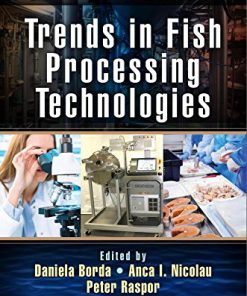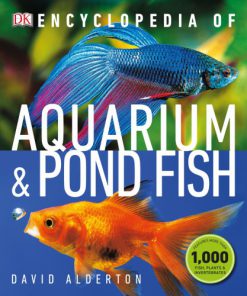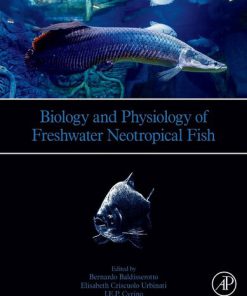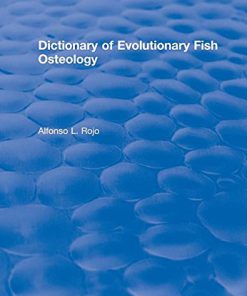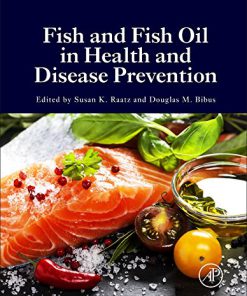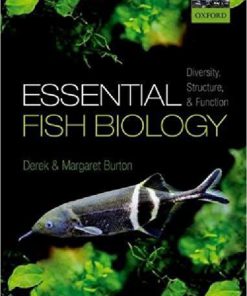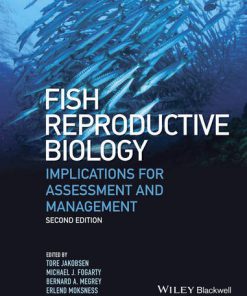Biology of Stress in Fish Fish Physiology Volume 35 1st Edition by Carl B Schreck,Lluis Tort,Anthony P Farrell,Colin J Brauner ISBN 0128027282 9780128027288
$50.00 Original price was: $50.00.$25.00Current price is: $25.00.
Biology of Stress in Fish (Fish Physiology, Volume 35) 1st Edition by Carl B. Schreck, Lluis Tort, Anthony P. Farrell and Colin J. Brauner – Ebook PDF Instant Download/Delivery: 0128027282, 9780128027288
Full download Biology of Stress in Fish (Fish Physiology, Volume 35) 1st Edition after payment
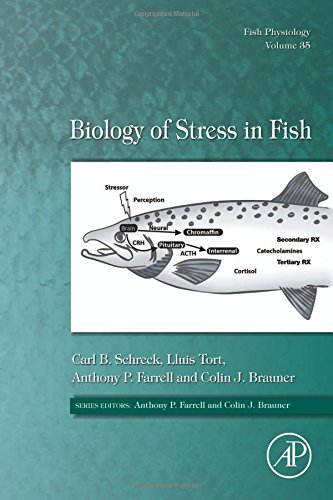
Product details:
ISBN 10: 0128027282
ISBN 13: 9780128027288
Author: Carl B. Schreck, Lluis Tort, Anthony P. Farrell and Colin J. Brauner
Biology of Stress in Fish: Fish Physiology provides a general understanding on the topic of stress biology, including most of the recent advances in the field. The book starts with a general discussion of stress, providing answers to issues such as its definition, the nature of the physiological stress response, and the factors that affect the stress response.
It also considers the biotic and abiotic factors that cause variation in the stress response, how the stress response is generated and controlled, its effect on physiological and organismic function and performance, and applied assessment of stress, animal welfare, and stress as related to model species.
- Provides the definitive reference on stress in fish as written by world-renowned experts in the field
- Includes the most recent advances and up-to-date thinking about the causes of stress in fish, their implications, and how to minimize the negative effects
- Considers the biotic and abiotic factors that cause variation in the stress response
Table of contents:
Preface
1. The Concept of Stress in Fish
1 Introduction
References
2. Variation in the Neuroendocrine Stress Response
1 Introduction
2 Ontogeny of the Teleost Stress Response
3 Neuronal Substrate for Stress and Variation in Stress Responses
4 Divergent Stress Coping Styles, Animal Personalities, and Behavioral Syndromes
5 Agonistic Interactions: Stress and Aggression
6 Nutritional Factors Affecting Stress Responses
7 Directions For Future Research
References
3. The Endocrinology of the Stress Response in Fish: An Adaptation-Physiological View
1 Introduction
2 Stress and the Brain: The (Neuro-)Endocrine Hypothalamus
3 Stress and the Pituitary Gland
4 Stress and the Head Kidney
5 Synthesis and Perspective
Acknowledgments
References
4. The Molecular Stress Response
1 Introduction
2 Molecular Regulation of the Hypothalamic–Pituitary–Interrenal (HPI) Axis
3 Genomic Cortisol Signaling
4 Genomic Effects of Cortisol
5 Significance of Molecular Responses
6 Approaches to Study Molecular Responses to Stress
7 Concluding Remarks and the Unknowns
References
5. Stress and Growth
1 Introduction
2 A Conceptual Framework for Growth
3 Stress Effect on Energy Available for Growth
4 Stress Effects on Promoters of Muscle Formation
5 Conclusion and Knowledge Gaps
References
6. Homeostatic Responses to Osmotic Stress
1 Introduction
2 Responses to Hyperosmotic Stress
3 Responses to Hypoosmotic Stress
4 Stress Sensing to Homeostasis
5 Energy Metabolism in Response to Osmotic Stress
6 Conclusions and Perspectives
References
7. The Stress and Stress Mitigation Effects of Exercise: Cardiovascular, Metabolic, and Skeletal Muscle Adjustments
1 Introduction
2 Physiological Demands of Swimming Exercise and the Stress Continuum
3 Physiological Adaptations to Swimming and Relevance to Stress
References
8. Reproduction and Development
1 Introduction
2 Regulation of Reproduction
3 Effects of Stress on Reproduction
4 Mechanisms of Stress Action
5 Stress Effects on Reproduction in Natural Environments
6 Future Directions
References
9. Cognition, Learning, and Behavior
1 How Stress Can Affect Behavior, and Vice Versa
2 Optimality, Preferences, and Decision-Making
3 Salmon as Model Species
4 Learning in Relation to Stress in Fishes
5 Some Critical Knowledge Gaps
Acknowledgments
References
10. Stress and Disease Resistance: Immune System and Immunoendocrine Interactions
1 Introduction
2 Effects of Stressors on the Immune Response
3 Organization of the Immune Response Following Stress: The Neuroimmunoendocrine Connection and the Role of the Head Kidney
4 Effects of Hormones on the Immune System
5 Environmental Stressors and Fish Immunity
6 Future Directions
References
11. Stress Indicators in Fish
1 Why Do We Measure Stress?
2 Quantifying Stress
3 Specific Measures of Fish Stress
4 Considerations for Measuring and Interpreting Stress
5 From Individual Indicators to Ecosystem Health
6 Stress Indicators of the Future
7 Conclusion
References
12. Stress Management and Welfare
1 Introduction
2 Managing Stress in Fish
3 The Impact of Stress on Fish Welfare
4 Conclusions and Future Directions
References
13. Stress in Fish as Model Organisms
1 Introduction
2 Indicators of Stress in Laboratory Fish
3 Factors Impacting Stress in Laboratory Fish Handling
4 Housing
5 Feeding and Stress
6 Sex and Hierarchies
7 Sex Determination and Reversal
8 Stress, Cortisol, and Reproduction
9 Anesthetics
10 Underlying Diseases
11 Consistency
12 Conclusion and Key Unknowns
References
Index
Other Volumes in the Fish Physiology Series
People also search for:
what are some consequences of stress from overcrowding biology
what is the biology of stress
is stress biological or psychological
is stress a biological factor
what are the biological effects of stress
how can stress affect you biologically
Tags: Carl B Schreck, Lluis Tort, Anthony P Farrell, Colin J Brauner, Biology of, Stress in Fish
You may also like…
Politics & Philosophy - Government & Politics
Science (General)
Trends in Fish Processing Technologies 1st Edition Daniela Borda
Biology and other natural sciences - Zoology
Biology and other natural sciences - Biology
Biology and other natural sciences
Relationships & Lifestyle - Health - Diseases & Disorders
Fish and Fish Oil in Health and Disease Prevention 1st Edition Susan Raatz
Biology and other natural sciences - Zoology
Essential Fish Biology: Diversity, Structure, and Function 1st Edition Derek Burton



